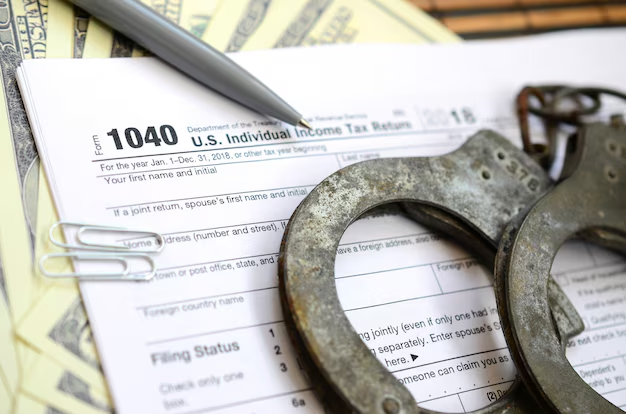How Does Being Unemployed Impact Your Taxes? What You Need to Know
Navigating the waters of unemployment can be a challenging experience, and when tax season comes around, many are left wondering how their employment status might affect their taxes. Whether you're filing for the first time after receiving unemployment benefits or simply unsure of the tax implications, understanding these nuances is crucial. Let's journey through the implications of unemployment on your taxes, delving into essential subtopics that provide you with comprehensive insights and guidance.
🎯 The Financial Reality of Unemployment Benefits
Unemployment benefits act as a financial safety net for those who have lost their jobs. However, many recipients are surprised to learn that these benefits are considered taxable income. Federally funded unemployment benefits must be reported as part of your gross income, subjecting them to varying tax obligations depending on your total income for the year.
Key Considerations:
- Tax Withholding: You have the option to request that federal taxes be withheld from your unemployment payments. This preemptive move can spare you from a hefty tax bill come spring.
- State Taxes: Some states also tax unemployment benefits. It's essential to check your state's policy, as their approach to taxation may differ from the federal stance.
📊 Understanding Form 1099-G
When you receive unemployment benefits, you'll be issued a Form 1099-G. This form is pivotal during tax season, as it outlines the total amount of money you received from your unemployment compensation over the year.
What to Look for on Your 1099-G:
- Total Benefits Paid: This reflects the maximum taxable amount.
- Federal Tax Withheld: If you opted for tax withholding, this amount will be noted here.
- State or Local Income Tax Withheld: Similar to federal withholding if your state taxes unemployment benefits.
🤔 Is All Unemployment Income Taxable?
For the vast majority, the answer is yes. Still, certain exceptions can slightly alter the taxable nature of these benefits:
Exclusions:
- Pandemic-related Benefits: During the pandemic, specific exemptions and temporary tax relief options were introduced for those on unemployment. Reviewing if any such provisions apply to your situation is key.
- Non-taxable State Benefits: It’s crucial to ascertain whether your state provides certain non-taxable unemployment benefits.
💡 Strategies to Manage the Tax Burden
Knowing strategically how to approach the tax implications of unemployment can significantly ease potential burdens. Here are some methods to consider:
Planning:
- Withholding Adjustments: Opt for withholding federal taxes directly from your unemployment benefits.
- Quarterly Estimates: Consider making estimated tax payments quarterly to avoid penalties or large sums come tax season.
- Other Deductions and Credits: Investigate available tax credits and deductions that can alleviate your total tax liability.
📅 Preparing for Tax Season: Steps for the Unemployed
As tax season approaches, being prepared helps ensure the process is as smooth as possible. Here is a streamlined approach to completing your taxes while unemployed:
- Gather Documents: Consolidate your financial documents, including the 1099-G form, W-2s (if any), and any other relevant tax papers.
- Review Last Year's Return: This can provide a baseline, especially for recurring deductions or credits.
- Estimate Tax Liability: Utilizing online calculators or software can offer a preliminary figure of what you may owe.
- Seek Professional Help: If complexity arises, consider hiring a tax professional to identify potential savings and ensure the accuracy of your return.
📌 Quick Facts Summary
Here’s a quick rundown of the critical takeaways and tips regarding unemployment and taxes:
- Unemployment Benefits: These are considered taxable income federally, and possibly at the state level.
- Form 1099-G: Always review this form accurately, as it summarizes the benefits you received.
- Tax Strategies: Opt for withholding or making quarterly payments to better manage your taxes.
- Consultations: Don't hesitate to seek professional advice to navigate any complexities.
🔍 Explore Beyond: Related Tax Implications
The intersection of unemployment and taxes stimulates further inquiry into related areas worth exploring:
🔄 Reemployment and Taxes
- Wages After Reemployment: Understanding how returning to work affects your tax bracket and liabilities.
- Unemployment Overpayments: Processes involved in addressing any overpayments from unemployment benefits.
💸 Tax Credits and Deductions:
- Earned Income Tax Credit (EITC): How changing income might influence your eligibility and filing requirements.
- Job Search Deductions: Potential deductions linked to your efforts in finding new employment, subject to IRS regulations.
👍 Final Insights on Navigating Unemployment and Taxes
In navigating the complexities of unemployment’s impact on taxes, awareness, preparation, and professional guidance are your best allies. Ensuring you are well-informed about the obligations and opportunities presented in your tax situation can significantly alleviate stress and allow you to focus on regaining stability in your employment journey. Furthermore, taxation laws can be subject to revisions, so staying updated with the latest information can further empower you to make informed decisions.
In your financial journey, the clearer your understanding of the applicable tax implications, the better equipped you will be in strategizing for the future. Always aim for an approach mindful of your broader financial health, prioritizing tax planning as an integral element in navigating the challenging, yet revealing, experience of unemployment.

Related Topics
- Are Unemployment Checks Taxed
- Are Unemployment Payments Taxed
- Can Unemployment Take Your Taxes
- Do Employees Pay Unemployment Tax
- Do I Have To Pay Taxes On Unemployment
- Do I Want 6 Withheld Of Taxes From Ga Unemployment
- Do You Have To Pay Tax On Unemployment
- Do You Have To Pay Taxes For Unemployment
- Do You Have To Pay Taxes On Unemployment
- Do You Need To Pay Taxes On Unemployment
